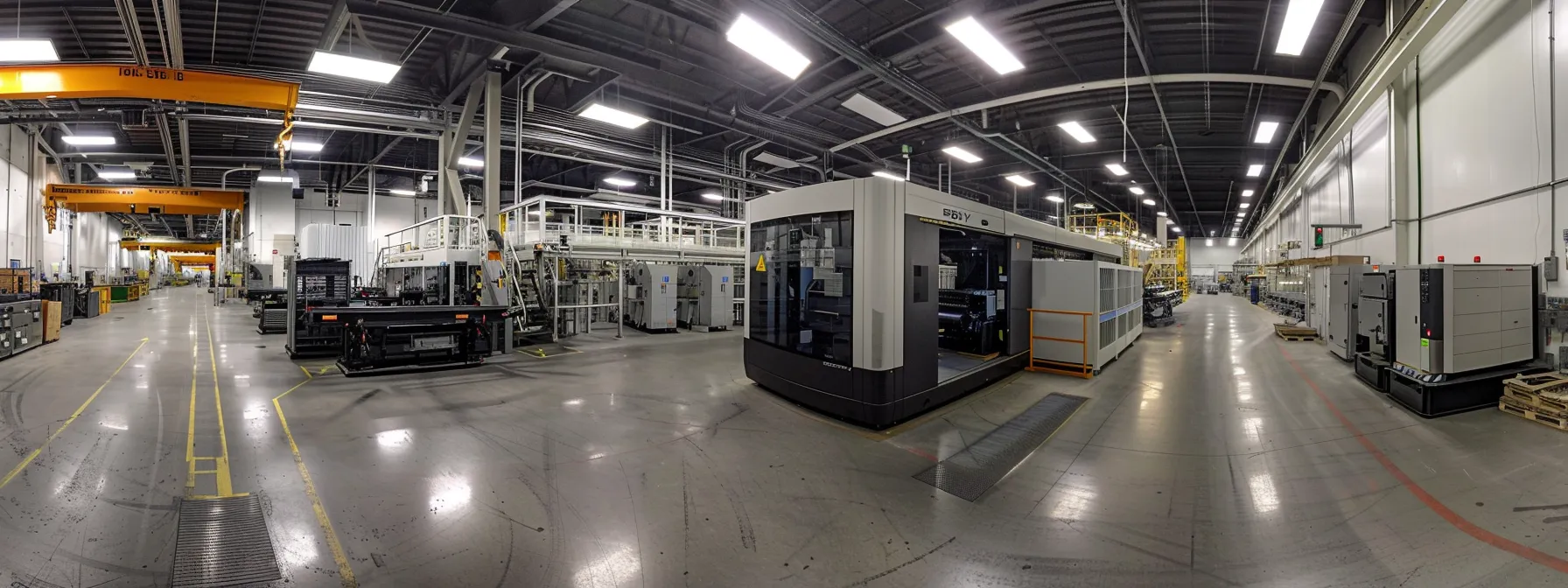The road to establishing a successful manufacturing business is paved with extensive planning, strategic investments, and an in-depth understanding of the market. Aspiring entrepreneurs must consider a myriad of factors, from assessing market demand to navigating complex regulatory landscapes. A sound strategy hinges on staying abreast of technological advancements and fostering strong business relationships. For those ready to embark on this challenging but potentially rewarding journey, valuable insights await. Keep reading as we navigate the intricacies of building a thriving manufacturing enterprise.
Assessing Market Demand Before Launching Your Manufacturing Venture

Understanding market demand is key to manufacturing success. Conducting thorough research, including surveys and sales data analysis, helps identify customer preferences and market trends. By targeting the right demographic and using economic indicators, manufacturers can position their products strategically and avoid excess inventory.
Piloting products before a full launch allows manufacturers to refine their offerings based on customer feedback. Leveraging tools like manufacturing ERP software can streamline this process, ensuring efficient tracking of product performance and adjustments, which leads to better market fit and long-term success.
Key Strategies for Effective Supply Chain Management in Manufacturing
Efficient supply chains are crucial for manufacturing businesses, ensuring timely delivery of raw materials, smooth production, and timely delivery of finished products. Strategic partnerships with reliable suppliers and logistics companies can improve supply chain efficiency and mitigate risks from inventory shortages and manufacturing bottlenecks. Implementing advanced inventory management systems can provide real-time insights, reduce waste, and optimize storage costs.
Just In Time (JIT) inventory can minimize excess stock holding, but balancing JIT is essential to avoid production delays. Data analytics is revolutionizing supply chain management, allowing companies to anticipate risks, adjust schedules, and maximize operational efficiency. Sustainability is also a priority, as adopting environmentally responsible practices can reduce the business’s ecological footprint and appeal to eco-conscious consumers, benefiting the environment and enhancing the brand’s reputation.
Leveraging Technology for Increased Manufacturing Efficiency
Advancements in technology offer both challenges and opportunities for manufacturers. Modern tools and machinery can improve efficiency, consistency, and quality of production, such as automation and robotics. Digital transformation extends beyond hardware, with ERP software enabling businesses to streamline operations and make informed strategic decisions.
The Internet of Things (IoT) can provide insights into machine performance and maintenance needs, enabling predictive maintenance and reducing downtime. 3D printing, a technology that allows rapid prototyping and low-volume production without expensive molds or tools, can revolutionize traditional manufacturing paradigms by allowing manufacturers to experiment with new designs and respond quickly to market demands.
Navigating Regulatory Compliance and Safety Standards in Manufacturing

Manufacturing is a complex industry with numerous regulations and safety standards to protect workers, consumers, and the environment. Compliance is crucial for businesses, requiring regular audits, employee training, and investment in safety equipment. Environmental regulations can be stringent, requiring manufacturers to adopt clean technologies and reduce emissions. Proactively addressing these requirements can lead to certifications and a commitment to sustainability.
Product safety is another key area of regulatory compliance, requiring rigorous quality control processes throughout the manufacturing cycle. Navigating these complex landscapes often requires specialized knowledge, and staying informed about legislative changes is not only good practice but also demonstrates a company’s commitment to legal and ethical manufacturing.
Building Strong Business Relationships in the Manufacturing Industry
In manufacturing, strong business relationships are key to success. Building lasting connections with suppliers, customers, and industry peers opens doors to new opportunities and insights. Networking through trade shows and industry events helps keep your business relevant while offering support and collaboration.
Customer relationships are vital, with feedback directly impacting success. Providing excellent customer service and staying engaged can lead to repeat business and referrals. Additionally, partnerships with businesses in related sectors, like commercial roofing, can ensure smooth operations by covering all aspects of your production environment.
Overall, the journey to establishing a flourishing manufacturing business is filled with obstacles, but with thorough market research, strategic supply chain management, technology adoption, diligent regulatory compliance, and robust industry relationships, you can build a solid foundation for success. The landscape of manufacturing is ever-evolving, and staying informed and adaptable is paramount to sustaining growth and prospering in this sector.







